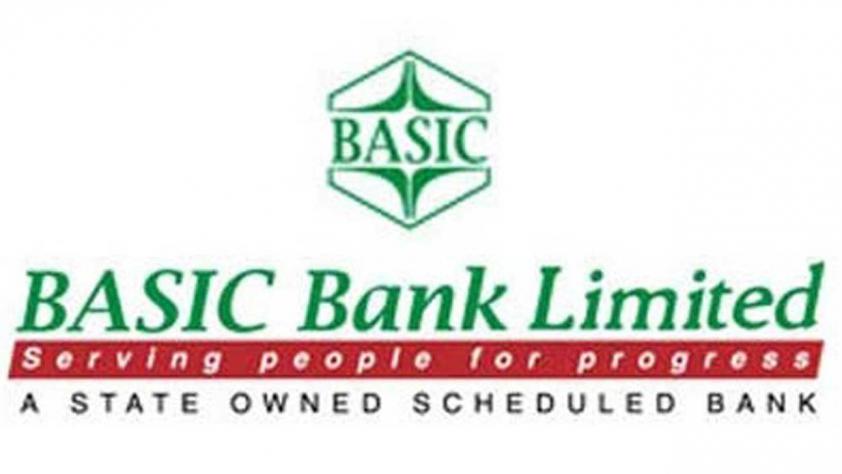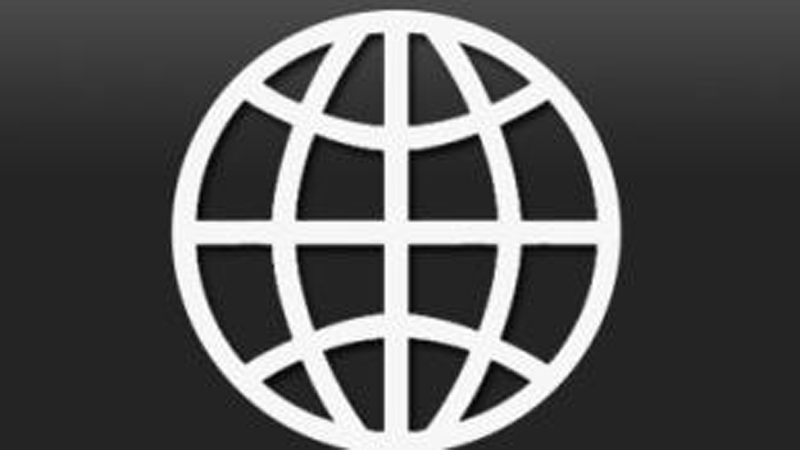Banking
Banks hit by crisis of cash dollars
Hajj and Eid holidays caused huge outflow: BB
Huge outflow of foreign currency during Hajj and Eid-ul-Azha has created a crisis of cash US dollar in Bangladesh, according to market players and the regulator.
The crisis has now forced the central bank to request the National Board of Revenue to withdraw tax on import of US dollar notes by local banks.
Hajj and the increase in the quota for cash when travelling outside the country have drained out the cash dollar reserves this year, said Nazneen Sultana, deputy governor of Bangladesh Bank.
Generally, the demand for cash dollar rises ahead of Hajj every year.
More than one lakh Bangladeshis performed Hajj this year, and each of the pilgrims was allowed to carry $1,500 in cash.
If the pilgrims took $1,000 on average each, the outflow of dollar with one lakh of them would come to $100 million.
On the other hand, the BB in April last year increased the foreign exchange quota limit for private travellers to $12,000 a year for an adult from $5,000 previously.
Lots of Bangladeshis now go abroad for holidays. But the BB has no exact data on how much greenback flew out of the country during Eid-ul-Azha.
Spending for Puja and rising medical tourism have created further strain on the cash dollar reserves, according to a senior treasury official of Jamuna Bank.
Like many other banks, Jamuna is also facing a crisis of cash dollar, with its holding almost exhausted.
But the situation has become a boon for some people: hoarders and money exchangers are benefitting from the price hike of cash dollar, with the exchange rate for a US dollar exceeding Tk 82 in the curb market in recent days.
However, the rate remained almost unchanged at Tk 80-Tk 80.9 a dollar yesterday at banks and authorised exchange houses.
“What is the point of raising the price when there is no cash dollar in the market?” said a senior treasury official of Prime Bank when asked why banks did not increase their selling rate for the greenback.
Some bankers blamed supply-side constraints for the shortage of cash dollar in the market. They said that the source of cash dollar has been struck by the poor inflow of foreigners in recent days.
Primarily, there are two sources of cash dollar: non-resident Bangladeshis, who bring cash greenback when visiting their near and dear ones, and foreign nationals, including businessmen and tourists.
“The demand for cash dollar is there, but we see a shortage in supply,” said the Prime Bank official.
Two senior BB officials have also witnessed this crisis when they were trying to buy dollar for their relatives who were travelling to the US.
This crisis has prompted the BB to request the revenue department to waive tax on the import of cash dollar.
However, some local banks differed.
“There is no strong ground behind this crisis. It seems unusual to us,” said a top official of Islami Bank Bangladesh that handled one-fourth of the country's inward remittances worth over $15 billion in fiscal 2014-15.
The official also said they did not see any extra pressure on the outflows.
A senior treasury official of NCC Bank was surprised to see the crisis of cash dollar in the market.
People who visit foreign countries frequently use their credit cards and not cash for most of their payments, he said.
An official at One Bank's Dhaka EPZ branch also said he did not see any shortage of the greenback.
“I have many foreign clients who buy and sell the greenback regularly. They are getting our services,” he said.
The Daily Star also spoke with an official of the NBR on the central bank's request for importing US dollar notes.
The official said a letter has been received but no decision has yet been taken.
On the tariff of importing cash foreign currency, neither the BB nor the NBR could specify the rate. “We don't know the tariff rate. The NBR knows it,” said Mahfuzur Rahman, spokesman of the BB.
At present, the country's foreign exchange reserves stands at over $26 billion, and the majority of the amount remains invested in foreign treasury bills, bonds, sovereign bonds and gold.
Bangladesh also received over $15 billion as remittances in fiscal 2014-15. But the remitters send their money through exchange houses and their beneficiaries get it in local currency.
News:The Daily Star/20-Oct-2015
BASIC's fight to get back on feet

State-owned BASIC Bank, which succumbed to reckless lending during the tenure of its controversial chairman Sheikh Abdul Hye Bacchu between 2009 and 2013, is now trying to get back on its feet by rescheduling the loans lent then.
After restructuring the board and management last year, it moved to reschedule Tk 2,100 crore out of Tk 4,500 crore in bad loans.
As part of the rescheduling plan, all necessary processes have been completed and down-payment made for Tk 1,500 crore, according to Alauddin A Majid, chairman of the bank.
The move is helping the bank in many ways. For instance, its bad loans and provisioning requirements have declined.
But most importantly, it is now able to make proper documentations against those loans and reduce the risks as well.
One of the best-run financial institutions until 2009, BASIC's downfall started when Bacchu took over as chairman in September that year.
The bank lent around Tk 5,500 crore during his tenure, most of which were approved and disbursed on inadequate documents and inflated mortgages.
Of the amount, Tk 4,500 crore turned bad, throwing the once best state-owned bank into severe trouble.
Its dire state compelled the government to dissolve the Bacchu-led board last year and appoint a new set, headed by Majid. The central bank also fired the then managing director of BASIC, Kazi Faqurul Islam, for presiding over the irregularities.
“We have identified almost all the borrowers of the bank, and are now sitting with them individually to motivate them to pay back the bank's money,” said a senior BASIC official.
The other measures that the bank has taken include bringing back its good customers and reducing the operating expenses.
“We were able to bring back seven good clients who left the bank during Bacchu's reign. We have taken over their loans at other banks.”
BASIC's operating expenses stood at just Tk 77 crore in 2010 and in four years' time, it ballooned to Tk 277 crore, as the Bacchu-led board doubled the branches to 68.
Now, the bank has washed its hands off high-cost deposits and stopped unnecessary spending, the official said. Given the measures, Majid is now hopeful that the bank will get back on track in a few years' time.
Capital shortage too has become a big challenge for the bank. “If we have adequate capital we can make good business,” Majid said.
Subsequently, BASIC has sought Tk 2,000 crore from the government to make up for its capital deficiency.
News:The Daily Star/18-Oct-2015
WB to scale up funding in BD

The World Bank (WB) most likely will scale up its funding to Bangladesh, with pleading new financing commitments amounting to $1.9 billion for the current 2015-16 financial year (FY16).
Referring to a meeting between finance minister Abul Maal Abdul Muhith and WB senior vice president Kyle Peters, the multi-donor agency in a press release issued on Sunday said the agenda of the meeting included discussion on the WB's growing portfolio in Bangladesh.
The meeting was held on the sidelines of the IMF-WB annual meeting held in Lima, Peru on Saturday where the finance minister was leading a Bangladesh delegation.
"They discussed the World Bank's growing portfolio in Bangladesh, which in 2015-16 (FY16) included new financing commitments amounting to $ 1.9 billion and disbursements of almost $1 billion", said the WB.
They also discussed the government's progress in advancing various reforms, including in the areas of taxation, standards, and companies, that are intended to improve the investment climate and that, if passed, could be supported by a World Bank development policy operation, the release said.
Peters also expressed his intention to visit Bangladesh in the near future.
News:The Independent/11-Oct-2015Standard Chartered donates laptop to a girl's high school
.jpg) Babul Krishna Saha, Head Master of Kashipur Adorsho Girls High School receiving laptops from Bitopi Das Chowdhury, Head of Corporate Affairs and Monitur Rahman Head of Technology Standard Chartered Bangladesh at the bank\'s head office recently.
Babul Krishna Saha, Head Master of Kashipur Adorsho Girls High School receiving laptops from Bitopi Das Chowdhury, Head of Corporate Affairs and Monitur Rahman Head of Technology Standard Chartered Bangladesh at the bank\'s head office recently.
Economic Reporter :Standard Chartered Bank donated laptop computers to Kashipur Adorsho Girls High School for the Goal beneficiaries studying at the School recently. Babul Krishna Saha, Head Master of Kashipur Adorsho Girls High School received the laptops at a handover ceremony held at Standard Chartered's Head Office in Dhaka. Bitopi Das Chowdhury, Head of Corporate Affairs and Monitur Rahman Head of Technology Standard Chartered Bangladesh handed over the laptops at the handover ceremony along with Rashida Perveen, Senior Program Manager and Abdul Bareque Senior Manager from BRAC. The girls from Standard Chartered's Goal initiative and also other students of the school will be using these laptops at the school's computer lab.Goal is a unique community program that aims to empower young women for personal and economic development using sport and education as vehicles for change. The Goal curriculum is based upon four training modules focusing on financial literacy and livelihood, 'Be Money Savvy'; communication skills, 'Be Yourself'; health and hygiene, 'Be Healthy'; and confidence and life skills, 'Be Empowered'.Standard Chartered Bank, Bangladesh in partnership with BRAC and Women Win launched Goal in Bangladesh in 2013. Within the first two years of launch the number of beneficiaries has already reached 5,700 in 4 districts (Narayanganj, Sylhet, Khulna & Bogra). Already 500 goal champions came out of the project. Bitopi Das Chowdhury, Head of Corporate Affairs, Standard Chartered Bangladesh said ""We hope this small attempt of ours will help the budding students of this school. This is the first time we have donated computers to a school and we plan to carry on with this in the days to come so that more schools and students who are deprived of such facility will be benefited. We believe that contributing in skill development; specially education will help economic growth and alleviate poverty for Bangladesh."
News:New Nation/14-Oct-2015Mohammed ImranIqbal, Vice Chairman of Premier Bank Limited handing over a Cheque for Tk50 lakh to Prime Minister Sheikh Hasina as donation for her relief fund on her achievement of receiving awards programs at a function at Gonobhabanon on Monday. Managin
.jpg) Mohammed ImranIqbal, Vice Chairman of Premier Bank Limited handing over a Cheque for Tk50 lakh to Prime Minister Sheikh Hasina as donation for her relief fund on her achievement of receiving awards programs at a function at Gonobhabanon on Monday. Managin
Mohammed ImranIqbal, Vice Chairman of Premier Bank Limited handing over a Cheque for Tk50 lakh to Prime Minister Sheikh Hasina as donation for her relief fund on her achievement of receiving awards programs at a function at Gonobhabanon on Monday. Managin



